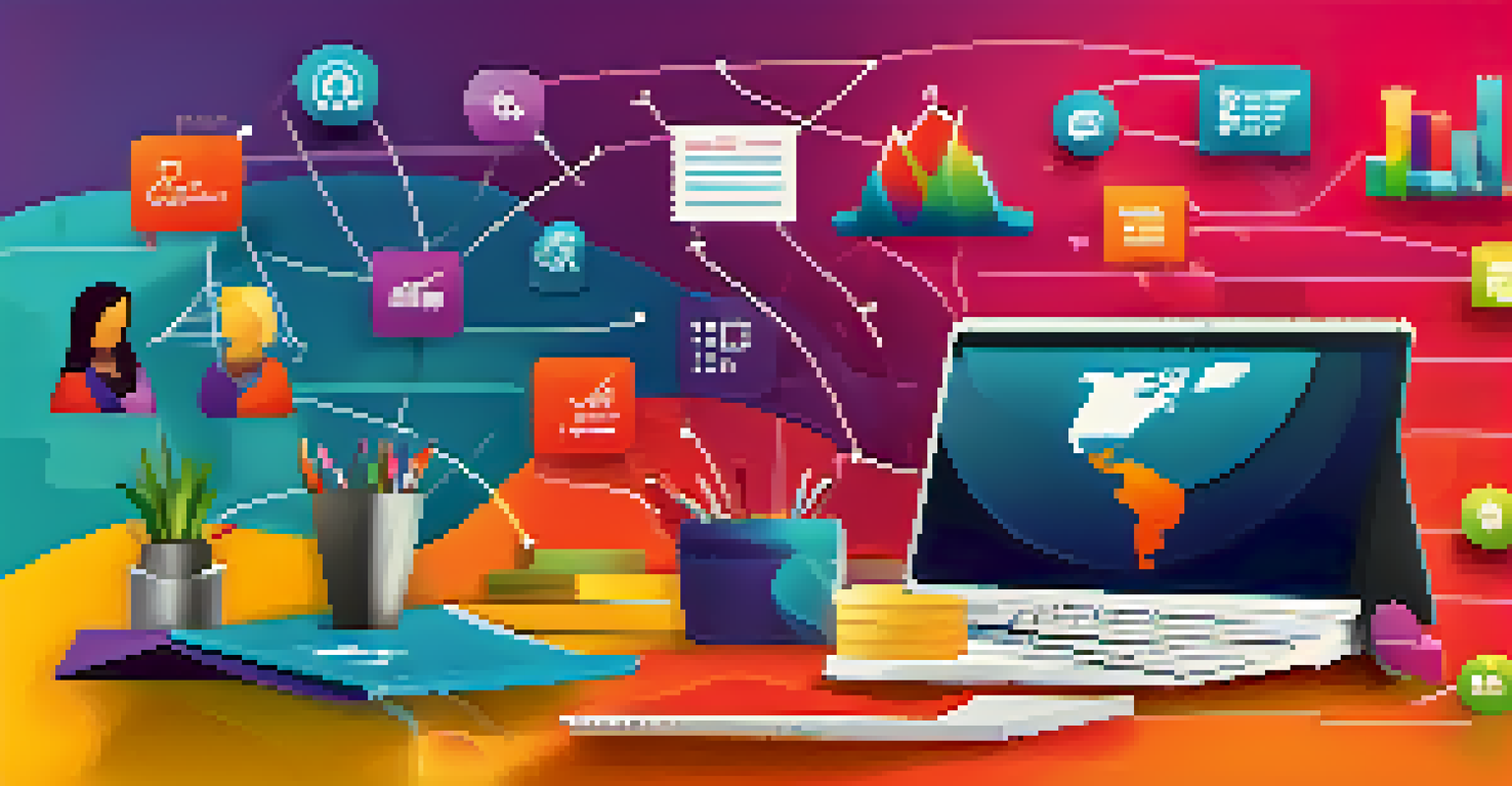Remote Consultations: Convenience in Healthcare Delivery

Understanding Remote Consultations in Healthcare
Remote consultations, often referred to as telehealth or telemedicine, allow patients to connect with healthcare providers via digital platforms. This innovation is transforming how we think about accessing medical advice and services, making it easier than ever to receive care from the comfort of home. Whether through phone calls, video chats, or messaging, these virtual appointments create a bridge between patients and providers, regardless of geographical barriers.
The greatest medicine of all is to teach people how not to need it.
The rise of remote consultations is largely driven by the demand for convenience and efficiency in healthcare delivery. Patients no longer need to navigate traffic or wait in long lines at clinics; they can schedule appointments that fit their busy lives. This is especially beneficial for those with mobility challenges or those living in rural areas where healthcare facilities are limited.
Moreover, remote consultations are not just about convenience; they also enhance access to specialized care. Patients can consult with experts across the country or even globally without the need to travel, which is a game-changer for those seeking specific treatments or second opinions.
The Benefits of Remote Consultations for Patients
One of the most significant advantages of remote consultations is the flexibility they offer. Patients can choose appointment times that work best for their schedules, making it easier to fit healthcare into their daily lives. This flexibility reduces missed appointments and encourages more individuals to seek medical advice when needed.

In addition to scheduling convenience, remote consultations can lead to better health outcomes by facilitating timely interventions. For example, if a patient has questions about a new medication or is experiencing side effects, they can quickly connect with their doctor rather than waiting weeks for an in-person visit. This immediate access can prevent complications and promote better adherence to treatment plans.
Remote Consultations Enhance Access
Remote consultations bridge geographical gaps, allowing patients to receive specialized care without the need to travel.
Lastly, remote consultations can significantly reduce healthcare costs for patients. By eliminating travel expenses and minimizing time off work, individuals can save money while still receiving quality care. This affordability is particularly important in a world where healthcare costs are often a barrier to treatment.
Challenges and Limitations of Remote Consultations
While remote consultations offer numerous benefits, they do come with challenges that are important to consider. One major concern is the potential for technical issues, such as poor internet connectivity or software glitches, which can disrupt the consultation experience. This can be frustrating for both patients and providers and may hinder effective communication.
The future of healthcare is not about the patient coming to the doctor, but about the doctor coming to the patient.
Another limitation is that not all medical conditions are suitable for remote consultations. Some situations require hands-on examinations or diagnostic tests that can only be performed in a clinical setting. For instance, a patient with a complex skin condition may need an in-person visit for a thorough examination and appropriate treatment.
Additionally, there are concerns about privacy and data security in telehealth. Patients must trust that their sensitive health information is protected when using digital platforms. Healthcare providers also need to ensure compliance with regulations, such as HIPAA, to maintain patient confidentiality.
How to Prepare for a Remote Consultation
Preparing for a remote consultation is essential to ensure a smooth and productive experience. First, patients should gather any relevant medical records, symptoms, and questions they want to discuss during the appointment. This preparation helps maximize the time spent with the healthcare provider and ensures that all concerns are addressed.
Next, it's important to choose a quiet and comfortable environment for the consultation. A distraction-free space allows for better communication and focus, making it easier to discuss health issues openly. Patients should also test their technology beforehand, ensuring that their device is functioning properly and that they have a stable internet connection.
Flexibility Improves Health Outcomes
The flexibility of remote consultations encourages patients to seek timely medical advice, leading to better health outcomes.
Finally, patients should be ready to engage actively during the consultation. This means being honest about symptoms, asking questions for clarification, and being open to the provider's recommendations. Active participation fosters a collaborative approach to healthcare, ultimately leading to better outcomes.
The Role of Technology in Remote Consultations
Technology plays a pivotal role in facilitating remote consultations, making healthcare more accessible than ever. Various platforms and applications enable secure video calls, messaging, and even remote monitoring of health conditions. These tools empower patients to take charge of their health while providing providers with innovative ways to deliver care.
Mobile health apps are particularly noteworthy, as they allow patients to track their symptoms, medications, and vital signs. This data can be shared with healthcare providers during consultations, leading to more informed decision-making and personalized care plans. The integration of technology into healthcare not only streamlines communication but also enhances patient engagement.
Furthermore, advancements in artificial intelligence and machine learning are set to revolutionize remote consultations. These technologies can analyze patient data to identify trends, predict health issues, and provide tailored recommendations. As technology continues to evolve, so too will the possibilities for delivering high-quality healthcare remotely.
The Future of Remote Consultations in Healthcare
The future of remote consultations looks promising, with continued growth and innovation on the horizon. As more healthcare providers adopt telehealth services, patients can expect an expanded range of specialties and services available remotely. This trend is likely to enhance the overall healthcare experience, making it more responsive to patient needs.
Additionally, as technology improves, remote consultations will become increasingly seamless and user-friendly. Enhanced features like virtual reality and augmented reality may soon play a role in remote diagnostics and treatment, offering new ways to visualize and understand medical conditions. This evolution will make remote healthcare not just a convenience but a comprehensive solution.
Technology is Key to Telehealth
Advancements in technology streamline remote consultations, empowering patients and providers while enhancing engagement and care.
Moreover, as awareness of the benefits of remote consultations spreads, we can anticipate a shift in how healthcare systems operate. Policy changes may support increased funding and resources for telehealth initiatives, ensuring that all patients have equitable access to these services. The future may hold a healthcare landscape where remote consultations are not just an option but a standard practice.
Conclusion: Embracing the Convenience of Remote Consultations
In conclusion, remote consultations represent a significant leap forward in healthcare delivery, offering unparalleled convenience and access. They empower patients to take control of their health while providing providers with innovative ways to connect and care for their patients. As technology continues to advance, the potential for remote consultations will only expand, making it an integral part of modern healthcare.
While challenges exist, the benefits far outweigh the drawbacks for many patients. By embracing remote consultations, individuals can enjoy a more personalized and efficient healthcare experience that fits their lifestyles. It's crucial for both patients and providers to adapt to this new paradigm, fostering a collaborative approach to health.

Ultimately, as we move forward, the healthcare landscape will continue to evolve, and remote consultations will play a key role in shaping the future of medicine. By embracing this change, we can ensure that quality healthcare is accessible to all, no matter where they are.